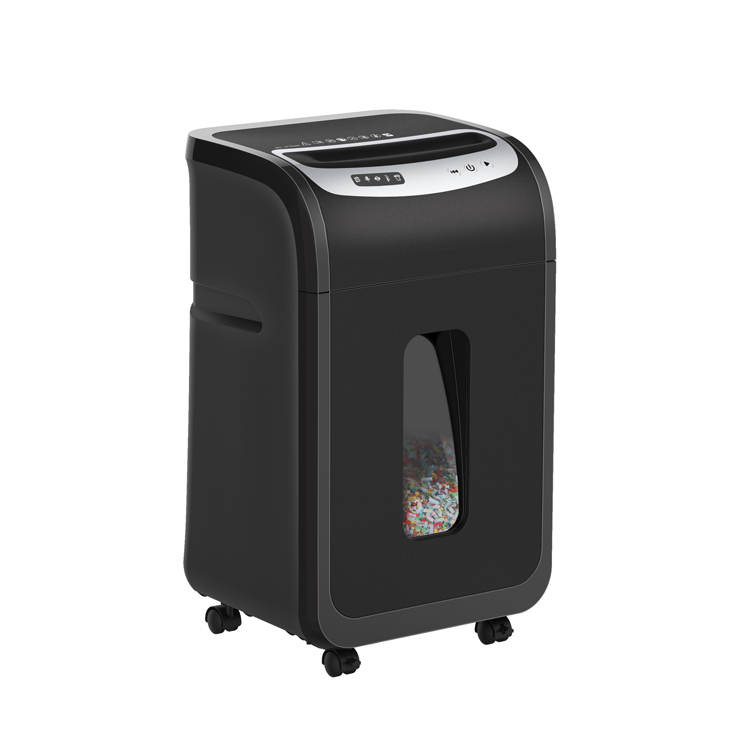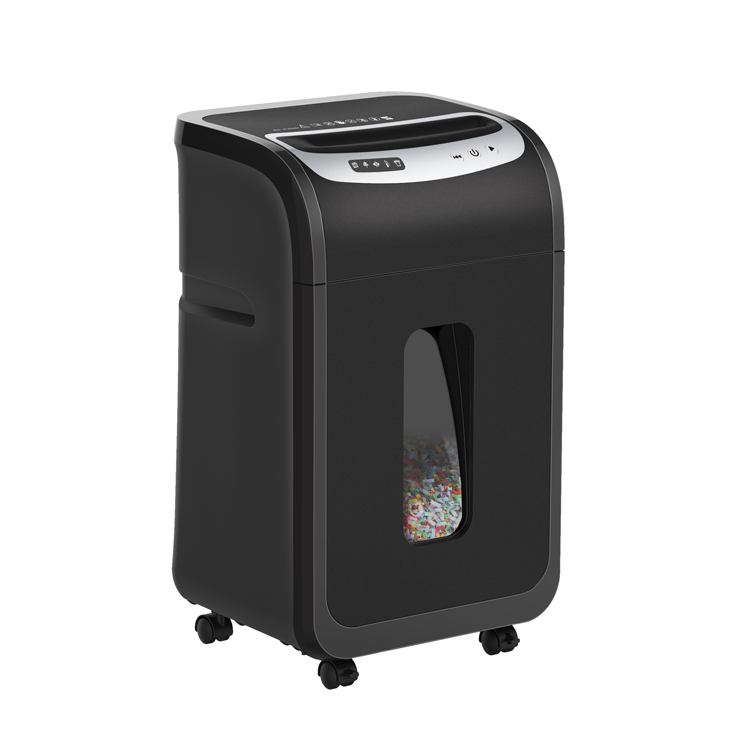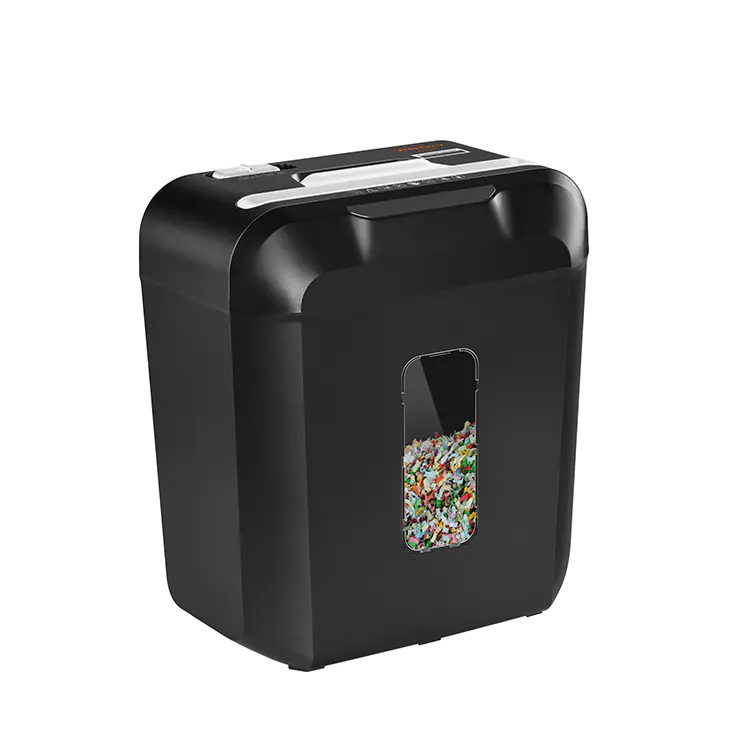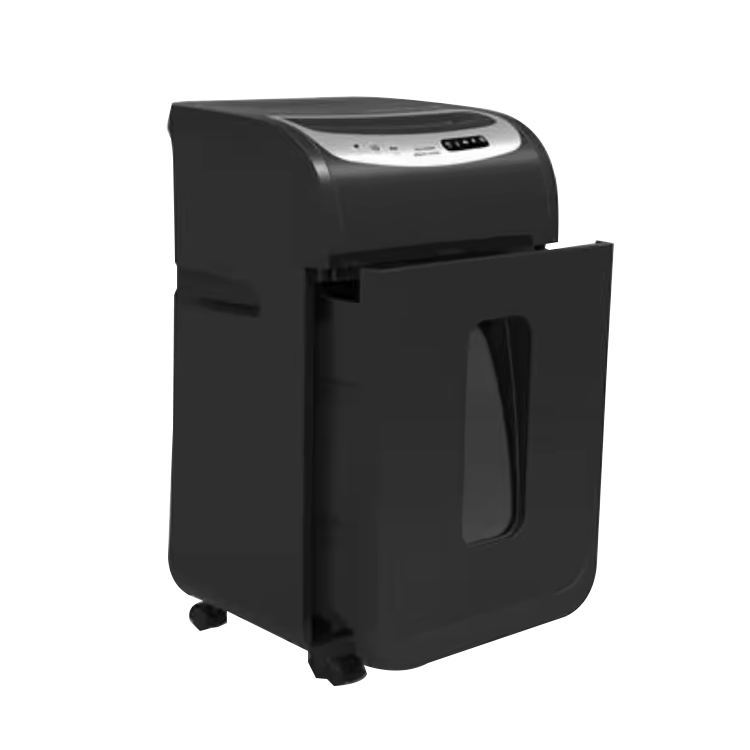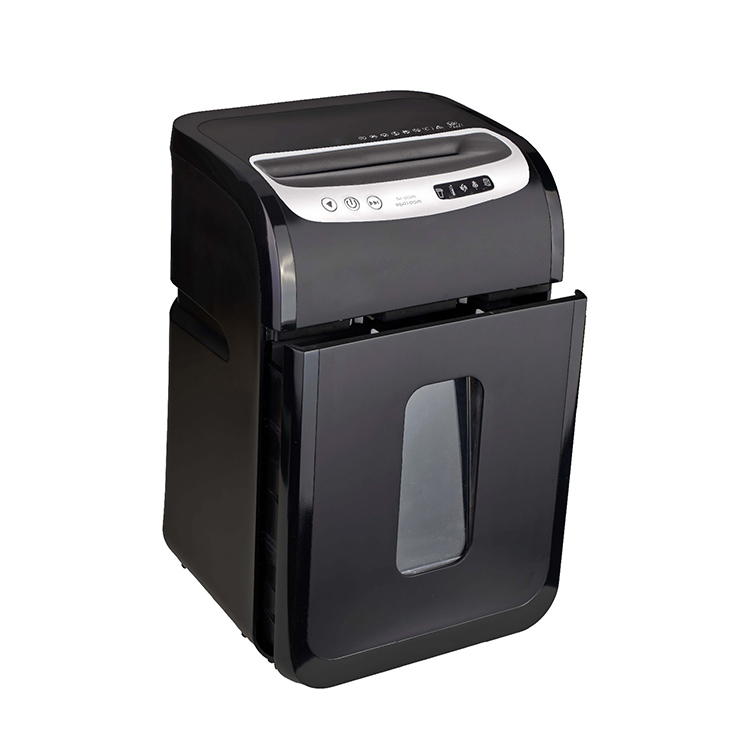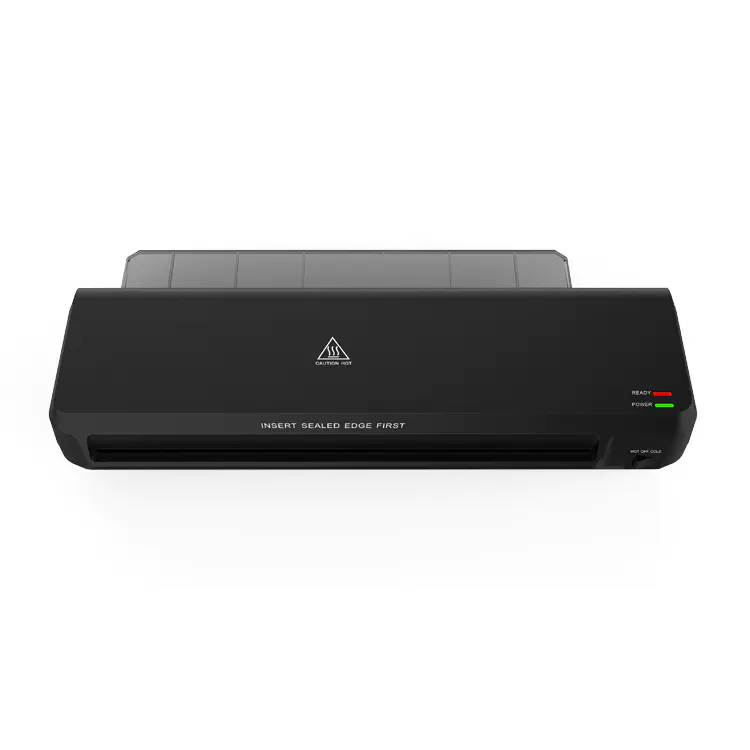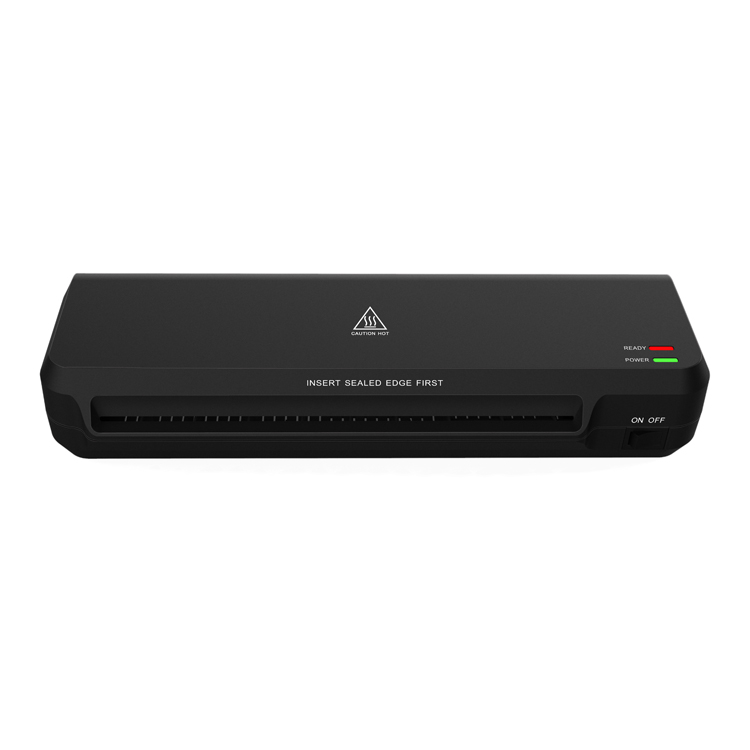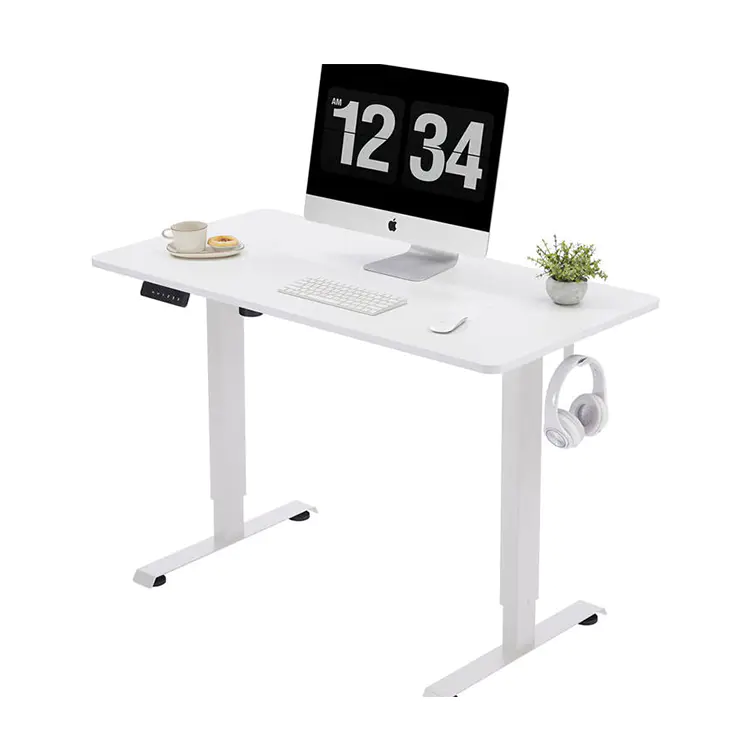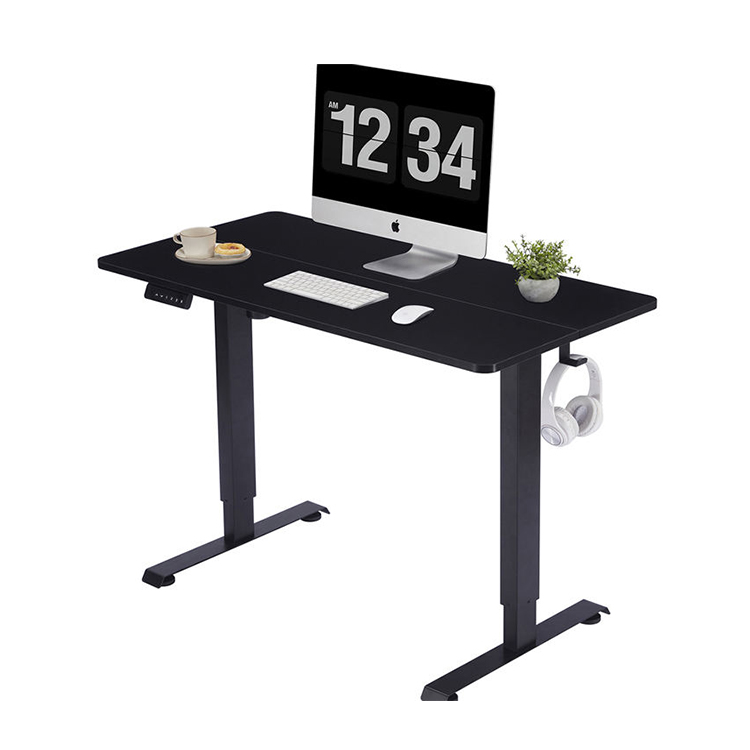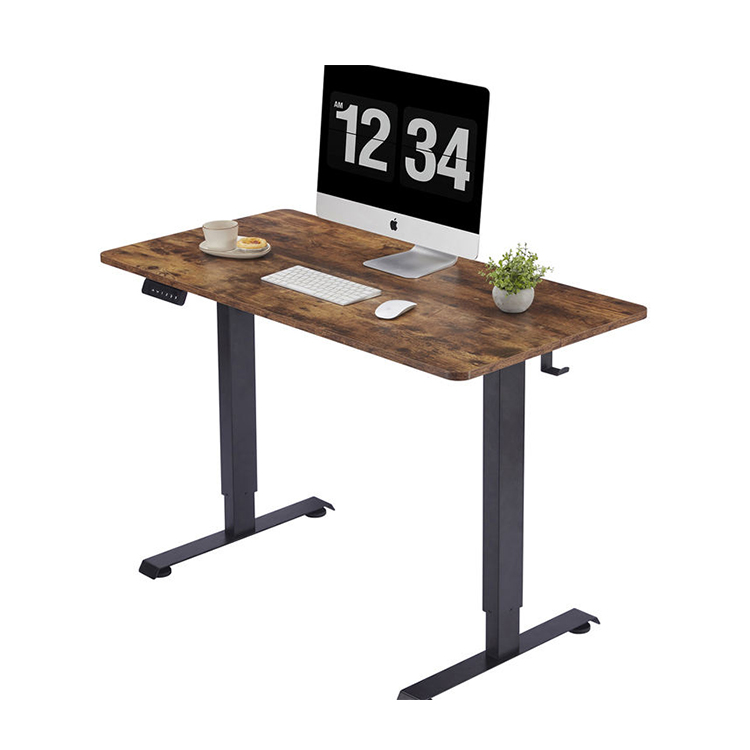Paper shredder usage tips: Practical ways to extend life and avoid paper jams
Paper shredders are essential devices in modern homes and offices. They not only protect privacy effectively but also help manage paper documents. Improper use can easily cause jams or shorten the shredder’s lifespan.
1. Follow the Shredder’s Specifications
Every shredder comes with clear instructions from the manufacturer, including the maximum number of sheets it can shred, supported paper types, and continuous operation time. Following these specifications is the first step to avoid jams and extend the shredder’s lifespan.
1.1 Control the Number of Sheets
Each shredder has a maximum number of sheets it can handle at a time. For example, a small home shredder may only process 5-8 sheets of standard copy paper at once. Exceeding this limit can cause jams and damage the cutting blades. It is recommended to feed paper in batches according to the manual to prevent overloading.
1.2 Pay Attention to Paper Types
Shredders have limitations on the types of materials they can process. Standard copy paper is usually fine, but paper with staples, paper clips, plastic labels, credit cards, or CDs must be confirmed for compatibility. For unsupported materials, either remove attachments or use a shredder specifically designed for such items.
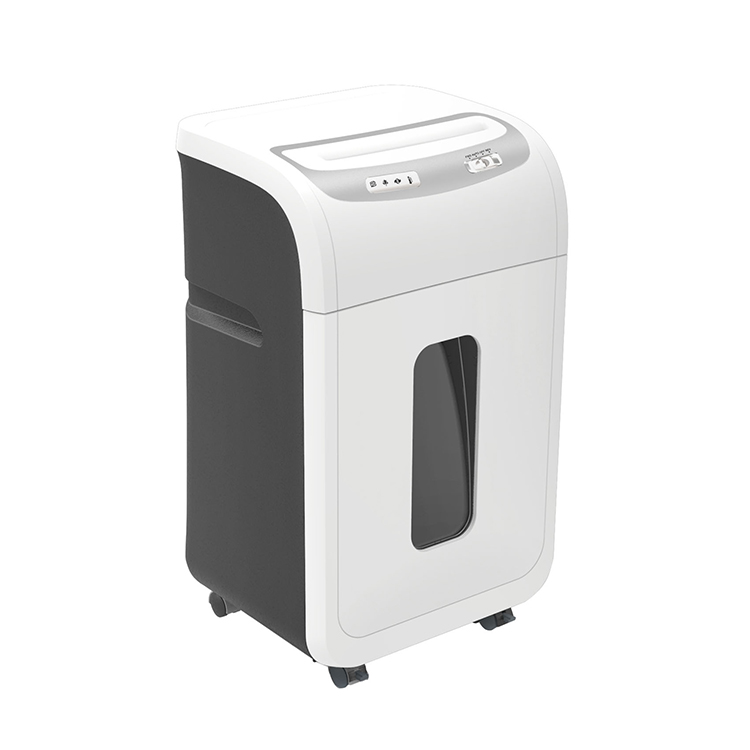
2. Regular Cleaning and Maintenance
During prolonged use, paper dust and scraps can accumulate in the cutting blades and the waste bin. If not cleaned regularly, this can lead to jams and increased motor load, affecting the shredder’s lifespan.
2.1 Empty the Waste Bin
An overfilled waste bin can press against the blades, causing jams or stopping the shredder from functioning properly. Check the bin after each use and empty it regularly to keep the shredder clean.
2.2 Clean the Blades
Paper scraps and dust can accumulate in the shredder blades, reducing cutting efficiency. Use compressed air or a small brush to clean out the gaps and ensure smooth operation.
3. Use Shredder Oil for Lubrication
The shredder blades experience friction during frequent use. Regular lubrication with shredder oil can reduce wear and extend the lifespan of the blades.
3.1 Lubrication Method
Apply a few drops of shredder oil directly to the blades and feed a few sheets of scrap paper to distribute the oil evenly. Lubricate weekly or monthly, depending on usage frequency.
4. Avoid High Temperature and Humid Environments
The shredder’s internal electronic components and blades are sensitive to environmental conditions. Excessive heat or humidity can affect performance.
4.1 Environmental Precautions
- Avoid direct sunlight: Sunlight can increase internal temperature and reduce motor lifespan.
- Prevent humidity: Moist environments can cause blade rust, and damp paper is more likely to jam.
- Long-term storage: Unplug the shredder and keep it dry when not in use to prevent moisture damage.
5. Correct Operation to Prevent Jams
Jams are the most common problem with shredders, but they can be avoided with proper operation.
5.1 Feed Paper Slowly
When feeding multiple sheets, maintain intervals to allow the shredder to finish processing the previous batch. Feeding too quickly can overload the blades and cause jams.
5.2 Use the Reverse Function
Most shredders have a reverse mode. When paper gets stuck, switch to reverse to gently pull it out instead of forcefully yanking it, which can damage the blades or motor.
5.3 Avoid Excessive Pressure
Do not force paper when encountering resistance. Excessive pressure can cause jams and damage the motor.
6. Prevent Shredder Overheating
Continuous operation can cause shredders to overheat, potentially damaging the motor.
6.1 Control Continuous Operation Time
Different models have different limits for continuous use. Small home shredders usually need to cool down after 5-10 minutes of continuous operation, while commercial shredders can operate longer.
6.2 High-Volume Use Recommendations
For offices with large volumes of paper, choose a high-power commercial shredder designed for long continuous operation to reduce overheating and jamming risks.
| Maintenance Method | Recommended Frequency | Main Purpose |
|---|---|---|
| Empty the waste bin | After each use | Prevent paper buildup and jams |
| Clean the blades | Once a week | Remove paper scraps and ensure smooth cutting |
| Lubricate the blades | Once a month or according to usage | Reduce friction and extend lifespan |
| Check environment | Once a quarter | Prevent heat and humidity from damaging the shredder |
| Check continuous operation time | Before long usage sessions | Prevent motor overheating and ensure normal operation |
Extending the lifespan of a shredder and avoiding jams depends on proper usage and regular maintenance. Users should follow the specifications, feed paper correctly, maintain cleanliness, lubricate blades regularly, and avoid extreme environmental conditions. Additionally, adopting correct operational habits such as feeding paper slowly, using the reverse function, and controlling continuous operation time can significantly reduce the risk of jams. By maintaining these good practices, your shredder will work efficiently and securely protect your documents for years to come.

 English
English русский
русский Español
Español Deutsch
Deutsch عربى
عربى
 0
0

